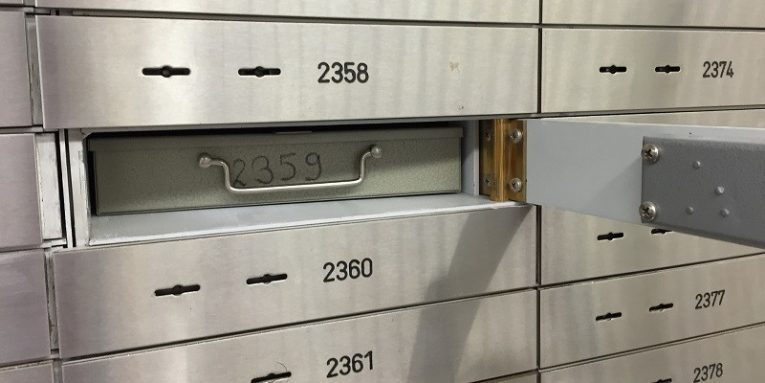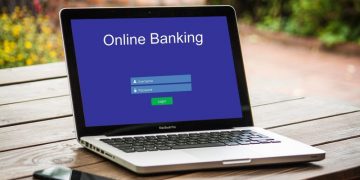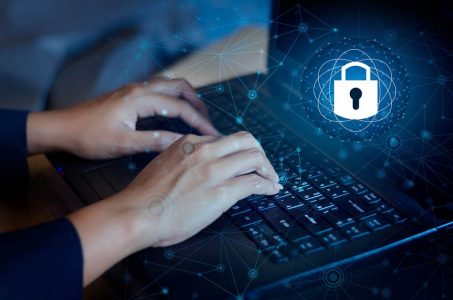These are the Questions Your Bank Will Not Ask You, but Scammers Might

Paying your utility bills has never been easier. With an online banking app it takes less than a minute or two to transfer the payment, and with third-party multi-factor authentication apps, you don't even need code generators or code cards these days. Your bank will make it as convenient as possible by offering the latest technologies and improving the overall money transfer process.
However, by relying so much on modern technologies, we can also become vulnerable to cybersecurity threats. Scammers will try their best to lure your personal information out of you, so you need to be on guard to avoid that. In this blog post, we will talk about the strange questions a bank asks to verify identity.
Table of Contents
When Does Your Bank Need to Verify Your Identity?
Perhaps the most common instance when your bank needs to verify who you are is when you log in to your internet banking account. Various banks might be using different types of authentication methods, but usually, the verification would consist of entering your username or code and your password. In most cases, that is enough for your bank to verify it's you.
On the other hand, sometimes you may call the bank when you have a certain issue, and before they proceed with your request, they might verify your identity by asking you to provide your personal details like your birth date, your ID number, or your address. Most of the time, the bank will NEVER call you first to ask you about it, and that is one of the most important aspects of cybersecurity and financial security. If a “bank” contacts you first, it is very likely that those are scammers trying to steal your personal information.
Let's look through some of the strange questions banks ask to verify your identity. If someone asks you this, the chances are you have encountered a malevolent scammer, and you need to improve your cybersecurity.
Fake Questions on a Phone
Scammers might use various channels to reach you. The most common ones are phone calls and email messages. The thing is that sometimes your bank might contact you to check whether it was you who made a certain transfer (especially if the transfer involved a large sum of money), but the bank will NEVER ask you to provide your online passwords or PIN numbers. It is possible for them to ask minor details to verify that it is you, but if someone asks you to recite the entire internet banking password, that's a big red flag.
Scammers are also very good at terrorizing unsuspecting users and pushing them into transferring their money to unfamiliar accounts due to “security reasons.” For example, someone might say that due to cybersecurity threats, your account might be under attack, and thus you need to transfer your money to another account provided by your bank. It surely can sound scary, but your bank would never ask you to do such a thing. Even if there was the danger of your funds being flushed to some other account, please remember that your bank has to ensure your money by default, so you would get back everything you might have lost anyway.
What's more, the scammers might also send someone IN PERSON to collect your code card after they call you and tell the bank needs to collect your PIN card. However, that is definitely something your bank would never do, so do not even think of opening the door for these scammers.
Cybersecurity Threats
Aside from ridiculous phone calls, schemers might use phishing emails and other cyber measures to reach you and to extort your personal information from you. For example, you might receive an email that looks like it was sent by your bank, and the mail asks you to click an embedded link that leads you to the bank's website. Here, you can check all the emails you have received from your bank before to see whether it follows the same form.
Normally, all the information necessary should be provided within the email, and there should be no requirement to follow an outgoing link. In the cybersecurity world, these outgoing links constitute phishing scams. Users get tricked into opening websites that look legitimate, but in reality, they collect sensitive information and then exploit it to perform illegal financial operations.
If you are not sure whether the email you received is fake or not, you can always double-check with your bank to see if they really sent it out. Likewise, if you receive an email that asks you to email the other party with your personal or banking information, you can also double-check with your bank by calling them via the customer service number. However, the chances are that an email that blatantly asks you to share such information was sent by schemers, and there is nothing legitimate about it.
The Golden Rule
The bottom line is that you should be concerned about your cybersecurity because it translates to your financial security as well. Although it is possible that your bank might contact you in regards to certain security issues, it is very unlikely that they will require you to provide details like your account password or PIN code numbers. Finally, there is the golden rule of double-checking that you can apply anywhere.
Not sure whether the call you've just received was legitimate? Try calling your bank. The email you've just received seems a bit out of the ordinary? How about you give your bank a call and see if they really sent out that email. And before you do that, please check the support number at the bank's official website because the support number in the email might be fake, too.
We often expect service providers to invest in our cybersecurity, and they most certainly do that to ensure the biggest client satisfaction rates. Nevertheless, we have to take part of the responsibility, too. Therefore, it is important to learn to recognize the signs that can signal a potential data theft, so that you could prevent it. What's more, you can always address your bank for individual cybersecurity tips. So that the next time someone asks you strange questions to verify your identity, you would know immediately that you should never answer them.








